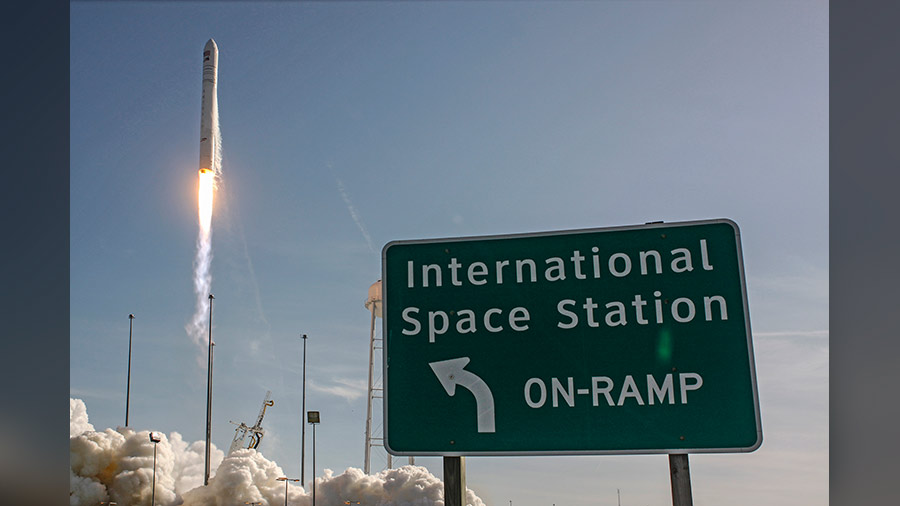U.S. Cargo Mission Nears Launch, Crew Unloads Russian Space Freighter

A U.S. rocket carrying Northrop Grumman’s Cygnus space freighter is counting down to launch toward the International Space Station on Saturday. Meanwhile, Russia’s Progress 80 cargo craft completed a two-day space delivery mission to the Expedition 66 crew early Thursday.
An Antares rocket stands at the Wallops Flight Facility launch pad in Virginia ready to boost the Cygnus cargo craft to orbit on Saturday. It will lift off at 12:40 p.m. EST placing Cygnus, carrying more than 8,300 pounds of station gear and science experiments, into space about nine minutes later. Once on orbit, Cygnus will deploy its cymbal-shaped UltraFlex solar arrays which will power the vehicle during its journey to the orbiting lab.
NASA Flight Engineers Raja Chari and Kayla Barron will be on duty early Monday monitoring Cygnus’ automated approach and rendezvous. When Cygnus reaches a point about 10 meters from the station, Chari will command the Canadarm2 robotic arm to reach out and capture the vehicle at 4:35 a.m. Ground controllers will then take over the Canadarm2 and remotely install the U.S. cargo craft to the Unity module a couple of hours later.
Russia’s Progress 80 resupply ship docked to the Poisk module at 2:03 a.m. on Thursday, delivering nearly three-and-a-half tons of food, fuel, and supplies, to the seven orbital residents. Station commander Anton Shkaplerov and Flight Engineer Pyotr Dubrov opened the hatch a few hours later and began unpacking the cargo that had launched from Kazakhstan just over two days earlier.
Despite the busy cargo schedule this week, biomedical science was in full-swing on the station today. Barron joined NASA astronauts Thomas Marshburn and Mark Vande Hei investigating how weightlessness affects visual function. Chari partnered with ESA (European Space Agency) Flight Engineer Matthias Maurer and checked his eyes using medical imaging gear.
from Space Station https://ift.tt/yxFcjM0
Comments
Post a Comment